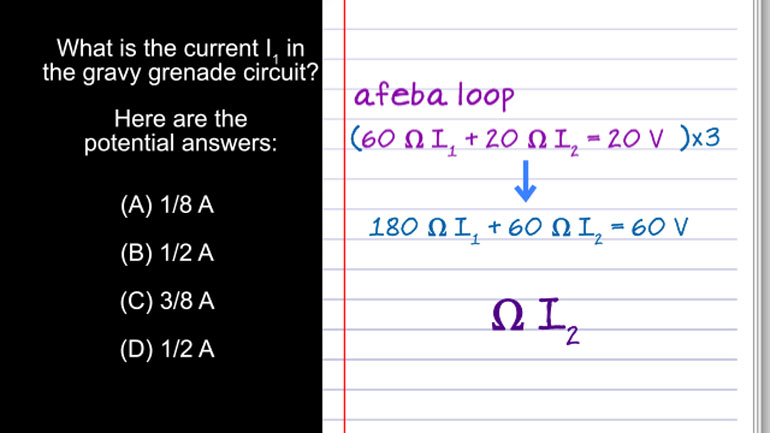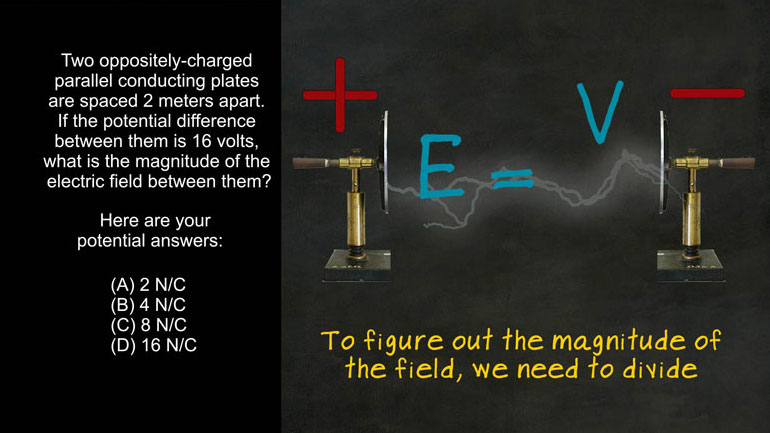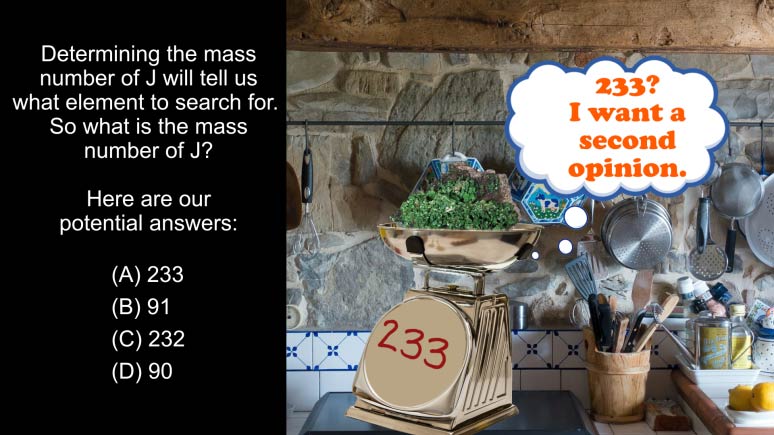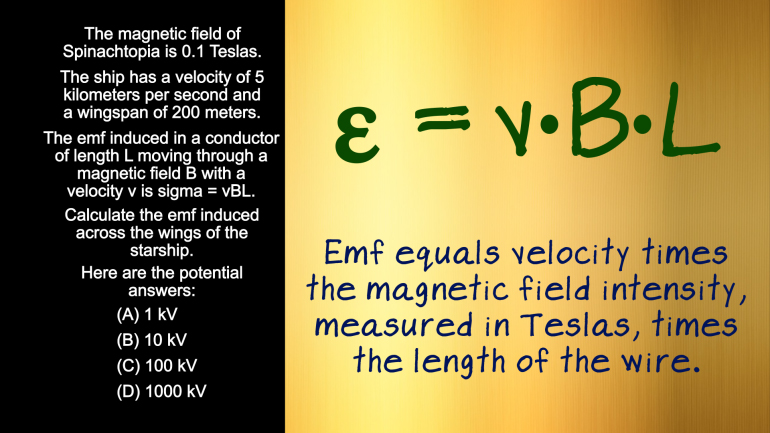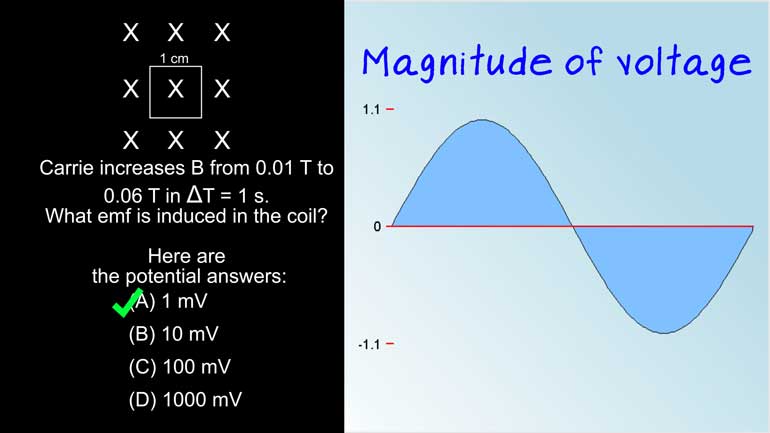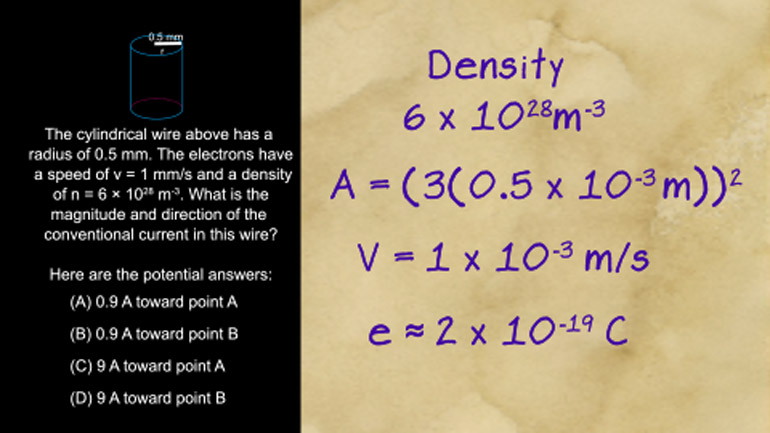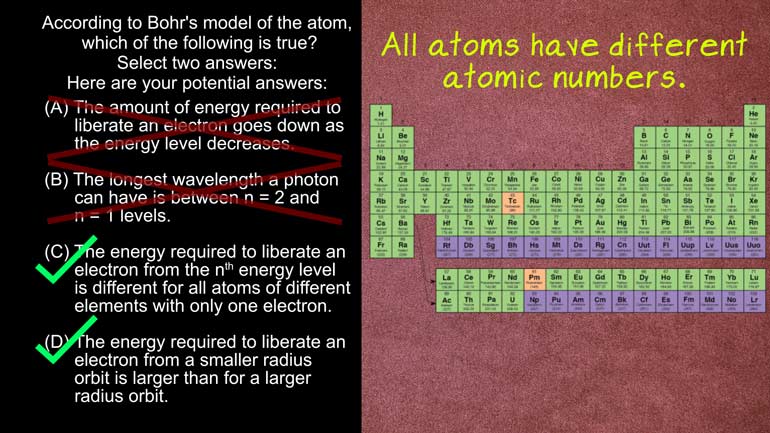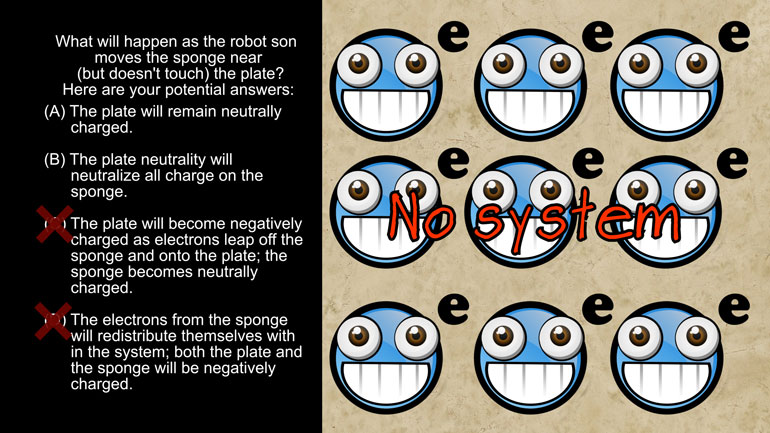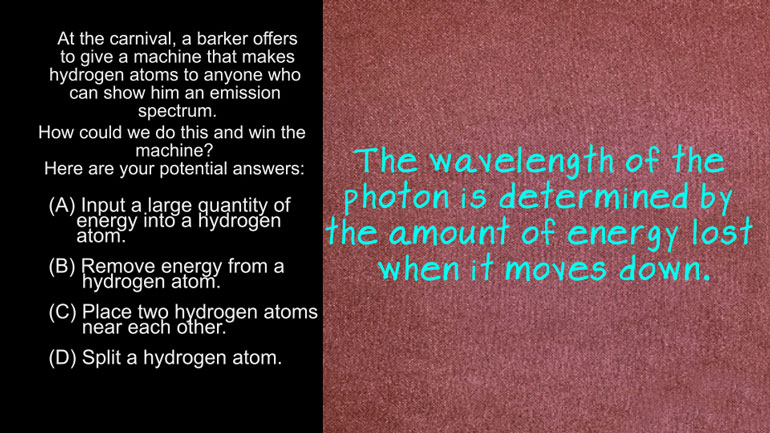ShmoopTube
Where Monty Python meets your 10th grade teacher.
Search Thousands of Shmoop Videos
Using data collection strategies Videos 7 videos
AP Physics 2: 2.4 Changes and Conservation Laws. What is the current I1 in the gravy grenade circuit?
AP Physics 2: 2.2 Fields in Space. What is the magnitude of the electrical field between the conducting plates?
AP Physics 2: 2.2 Probability and Systems. What is the mass number of J?
AP Physics 2: 2.4 Changes and Conservation Laws 6 Views
Share It!
Description:
AP Physics 2: 2.4 Changes and Conservation Laws. What is the current I 1 in the gravy grenade circuit?
Transcript
- 00:04
here's your shmoop du jour brought
- 00:05
to you by food fries although we've never been food fighters [People throwing food into each others face]
- 00:09
we've always been food lovers we're going to pour ourselves another glass of [Man sipping gravy]
- 00:13
gravy and then I get to work an immense food fights broken out in the cafeteria
- 00:17
in the midst of all the confusion something drops onto Hannah's table
Full Transcript
- 00:20
it's a squishy bag with a countdown timer and it realizes it's a gravy [A bag of TNT appears]
- 00:25
grenade sure she could run away and save herself
- 00:27
but Hannah thinks she knows enough about electric circuits to defuse this thing
- 00:30
less than 10 seconds left anna cuts the wire embraces herself [Hannah cuts wire]
- 00:35
two-one-zero nothing happens the gravy grenade has been defused she jumps up
- 00:41
with a booyah and then a mound of mashed potato it's her right between the eyes [Mashed potato strikes hannah in the face]
- 00:45
take a look at this diagram of the circuit right there yeah all right
- 00:50
what's the circuit I won in a gravy grenade circuit and your essential
- 00:55
answers all right well seems like there's an arms race and food fight [Men throw pie into face]
- 01:00
these days if there are gravy grenades well we're just a few steps away from a
- 01:04
butter bazooka which could be devastatingly slippery [Man with butter bazooka]
- 01:06
luckily we can work on disarmament maybe get some kind of cafeteria peace prize
- 01:10
from the lunch lady well this circuit has two loops which
- 01:13
means we'll be employing the loop rule the loop rule basically states that when
- 01:17
following any closed loop around a circuit there is no change in the
- 01:20
potential there are a few rules that go along with this one when crossing the
- 01:24
resistor in the same direction as the current the potential drops by current
- 01:28
times resistance 2 when crossing the resistor in the opposite direction to
- 01:32
the current the potential increases by current times resistance 3 when moving
- 01:36
through a battery from negative positive the potential increases by voltage 4
- 01:41
when moving through a battery from positive to negative the potential
- 01:45
decreases by voltage well in this circuit we have two loops first we have [loops of circuit highlighted]
- 01:49
AFEBA let's break this loop down step-by-step keeping in mind the rules
- 01:54
we just covered from A to F we move through v1 from negative to positive
- 01:59
which adds positive c1 from F to e we cross our one in the direction of i1
- 02:05
which adds negative I,1 r1 from E to B we cross our 4 in the direction of
- 02:12
I 1 plus I 2 which adds negative I 1 plus I 2 times R 4 from B to a there is
- 02:18
no change the changes in potential along the loop sum to 0 well here's the whole
- 02:23
thing it's an equation walking out way through the loop CDEBC we'll find an
- 02:29
equation that looks like this there we go okay we were given the [Equation appears on circuit]
- 02:33
voltages and resistances so we can plug those numbers into the equations
- 02:38
well we can simplify those equations and set them as simultaneous now we're
- 02:42
getting out to break up in here to solve this we multiply the AFEBA loop by 3
- 02:48
making it easier to deal with the second variable Omega I to remember we're
- 02:54
solving I sub 1 we then subtract loop C de BC from this equation [Equation appears]
- 02:59
leaving us with a new equation of a hundred sixty ohms times current I sub 1
- 03:05
equals 20 volts since current equals volts over resistance we can divide the
- 03:11
voltage 20 by the resistance 160 to find that current one equals one eight
- 03:17
amperes meaning the correct answer is a and hopefully everyone has learned their [Man carrying butter bazooka]
- 03:22
left and when it comes to food fight you know that we're never going to use food
- 03:25
as ammunition again but then again we're not sure what they feed us in our
- 03:29
cafeteria actually counts as food [Man turns green after sniffing cafeteria food]
Related Videos
AP Physics 2: 1.1 Properties of Objects and Systems. What is the magnitude and direction of the conventional current in this wire?
AP Physics 2: 1.5 Properties of Objects and Systems. According to the Bohr's model of the atom, which of the following are true?
AP Physics 2: 2.2 Properties of Objects and Systems. What will happen as the robot son moves the sponge near (but doesn't touch) the plate?
AP Physics 2: 2.4 Properties of Objects and Systems. How could you show the carnival barker an emission spectrum?
